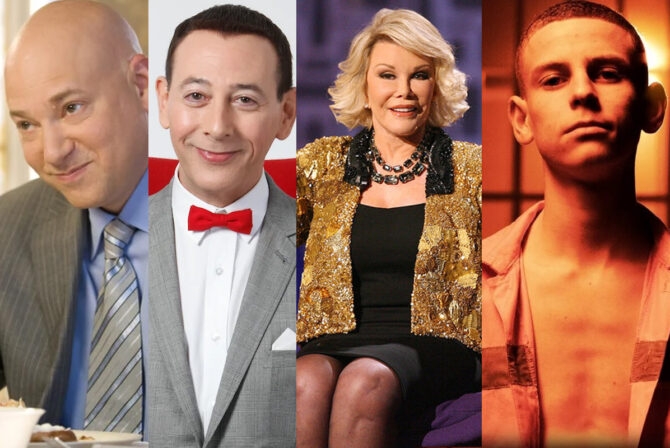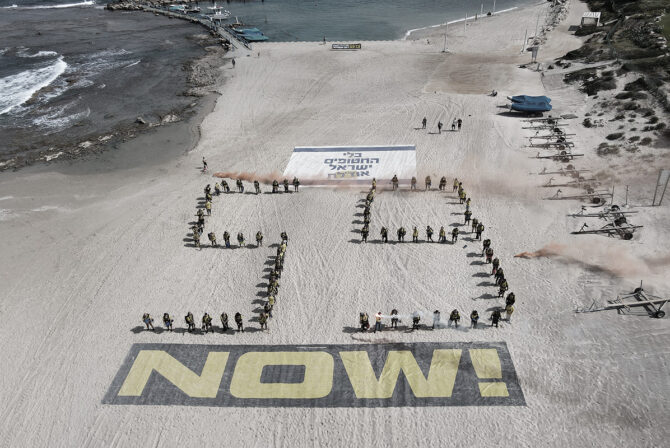As Christmas approaches, many Jewish families, especially interfaith families, confront the question: Do you have a tree? Both married to non-Jews, but raising Jewish children, friends Aliza Worthington and Shoshana Martyniak have two very different answers.
Aliza: So, I have a Christmas tree in my house. Here’s why, not that you asked.
I’m married to a man who was raised Catholic. I was raised in a secular Jewish household by Jewish parents who insisted that the most important requirement for marriage was mutual love (lots of it) and mutual respect (lots of that, too). All other considerations were secondary. So, it surprised no one when my sister married a Catholic. When my grandmother learned my sister and her then-husband were going to have a Christmas tree, she said, “But, it won’t be a Jewish household!”
That’s correct. It wasn’t a Jewish household, and neither is mine. Mine is a household in which a Catholic man and a Jewish woman love each other. A household where we are equals in virtually every way. (Okay, I’m a better dancer and he’s a better skier.) Love and respect in abundance. Neither of us is observant, though we agreed long ago our kids would be Jewish. This is what works for us.
Yet, once we got married, having a Christmas tree was never a question, any more than having a menorah was. (Please forgive the comparison–I’m fully aware that Hanukkah is not the Jewish Christmas, and that other holidays trump Hanukkah’s importance on the spectrum of Jewish holidays.) I never, ever felt that marrying a Catholic meant I was no longer Jewish, or even a teensy bit less Jewish than I was before. Having a Christmas tree in the house to celebrate my husband’s life-long traditions took nothing away from that.
As far as children were concerned, we felt that when we had them, what they experienced wouldn’t confuse them terribly because Dave and I agreed on the approach. Their daily reality, as a matter of course, would be based on two people of different religions who love and respect each other, and didn’t allow religion to form a barrier between them. Mommy celebrates Christmas with Daddy because he’s Catholic. Daddy celebrates Hanukkah with Mommy because she’s Jewish. We thought that was a pretty good example to set, during the holidays and throughout the year.
Twenty years later, the results are admittedly (and predictably) ambiguous. My 16-year-old daughter doesn’t really identify with either religion very much. My 14-year-old son goes to Catholic high school, but filled out the application identifying himself as “Jewish, non-practicing.” My husband’s idea. My 8-year-old son is more interested in the macro approach–is there a God, why don’t we go to church, and so on. Neither my husband nor I incorporate religious practices into our daily lives, so it makes sense that the kids don’t consider it central to their existence.
Honestly, I do wish I’d (we’d) done more to incorporate Judaism into their lives, to strengthen their feeling of having a Jewish identity. We have, though, always emphasized treating those around us with kindness and respect. In our family, part of this has involved me and them celebrating Christmas with Dave because his traditions are every bit as worthy of respect and honor as mine.
Shoshana: I do not have a Christmas tree in my house. I’ve never even toyed with the idea of a Christmas tree in my house. My father is the educational director of a large Reform synagogue in the Midwest. I grew up playing on the floor of my father’s office at the synagogue. I grew up with Shabbat dinner and Jewish summer camp. I grew up with Torah study, Rashi, and the NFTY chordster. I grew up being the only Jew in my class. My parents molded my Jewish identity with thought and care. When Christmas rolled around my father always grumbled. “The Holiday Season is over.” He still grumbles. We were taught from a young age that Hanukkah was not only not a big holiday, but it was really a holiday celebrating Jews overcoming the Hellenization of Judaism.
My Jewish identity didn’t waver when I met my husband– a Secular American boy from a small midwestern town. My distance from Christmas didn’t waver either. “If you want to date me, you’ll have to give up Christmas. If you can’t give up Christmas, than we might as well not date.” I was young and in love, and while I was willing to compromise on him not being Jewish, I wasn’t willing to give up creating a Jewish home with Jewish children.
My husband never grumbled. He shrugged his shoulders and gave up Christmas: no tree, no lights, no garland on the door, no Christmas wrapping paper. He gladly married me under a chuppah. He thought of both our children’s very Jewish names. He held our son at his
bris
. He learned all the prayers. He even insisted on Jewish Day school and religious school for our children. However, he is still not Jewish. He’ll never be Jewish, but our kids are Jewish. Our home is Jewish–our marriage might be an intermarriage, but we do not have an interfaith home.
For me, a Jewish home is a sacred space. It is a safe place where no one can dictate their rules. Inside my Jewish home, I can shut the door to the Christmas music, the manger scene, the jolly Santa and the expectations that I am a scrooge because I’m not joining in on the fun. Don’t get me wrong; the elements of Christmas–the lights, the giving, the time with family are beautiful, but they aren’t mine. It isn’t my holiday. It isn’t my children’s holiday, and it’s no longer my husband’s holiday.
While Christmas or a tree makes no appearance in my house I’m open to bringing my family to my in-laws’ on Christmas to share their holiday. We can share in their lights. We can share in their meal. We can admire their tree. We can give them gifts and laugh when my father-in-law dresses up as Santa. But, at the end of the day, we may visit, but we will always return home–to our Jewish home.
Aliza Worthington grew up in Brooklyn, NY, and now lives in Baltimore, MD. She began writing in 2009 at the age of 40. She seizes and reflects on the many teachable moments that come our way in her blog, “The Worthington Post.” Her work also appears in Catonsville Patch and has appeared on Daily Kos under the username “Horque.”
The Editor of the Jewish VOICE, Shoshana Martyniak’s graduate research analyzed Emma Lazarus’ literary fight against antisemitism. Director of Listen To Your Mother: Wilmington, Shoshana also writes about her life in her very real American Shtetl, her body, and the fiction roaming around in her head at Shoshuga.com.







